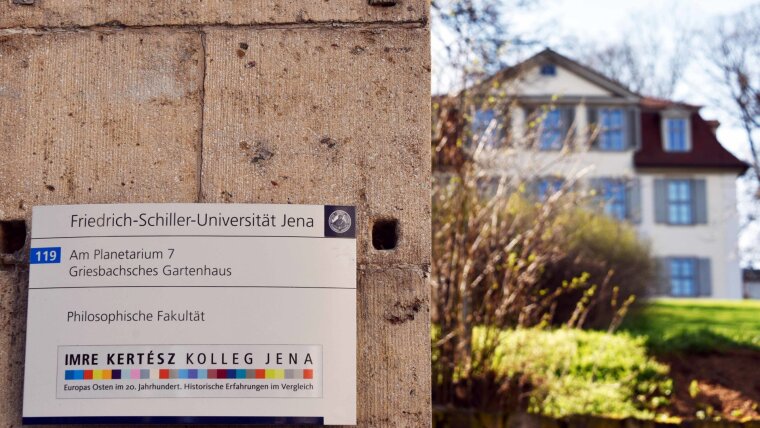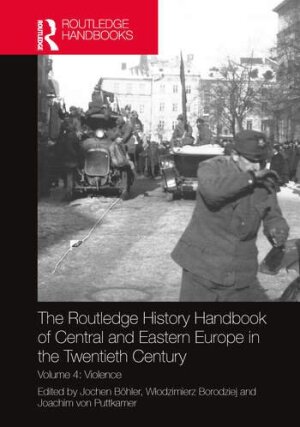
Book cover
Image: RoutledgeBy Stephan Laudien
The »Imre Kertész Kolleg« recently published a volume entitled »Violence«, marking the culmination of its four-part »History Handbook of Central and Eastern Europe in the Twentieth Century«.
On the one hand, the volume examines the violence exerted on Eastern European societies by war-hungry powers and totalitarian regimes in the 20th century. On the other hand, it focuses on the violence caused by conflicts between ethnic, social and national groups and the interaction between the two phenomena.
»In view of the war in Ukraine, it seems almost ironic that the final volume in the series deals with the history of violence in Eastern Europe«, states Prof. Dr Joachim von Puttkamer, the director of the »Imre Kertész Kolleg«.
The authors examined experiences of violence during the wars in the Balkans, which began in 1912 and only ended with the Yugoslav Wars from 1992 to 1995, as well as the history of both World Wars, which raged in Eastern Europe in particular.
The new volume also looks at how those experiences of violence have continued to have an impact since 1945, says Joachim von Puttkamer. Put simply, a gradual change in the experience of violence can be observed – from brutal violence to more subtle methods that nevertheless have the same self-destructive potential of violence.
The chapter on Poland and Romania has also become the legacy of Włodzimierz Borodziej. The co-director of the »Imre Kertész Kolleg« passed away in 2021.
Book series combines twelve years of research
»The Routledge History Handbook of Central and Eastern Europe in the Twentieth Century« crowns the work carried out by the »Imre Kertész Kolleg« in the twelve years since it was founded. The four volumes cover the entire belt of countries between Germany and Russia – from the Baltic States to Bulgaria – with a somewhat pronounced focus on larger countries such as Poland, the former Czechoslovakia, Romania, and the former Yugoslavia.
The volume entitled »Challenges of Modernity« explores profound economic and social change from the agricultural societies on the European periphery to state-socialist industrialization and the transitioning societies of the present. The volume on »Statehood« examines imperial and national, democratic, and dictatorial traditions in a century in which state institutions have reached deep into people’s everyday lives. The volume on »Intellectual Horizons« focuses on views of history and identities, literature, and culture.
The authors take a transnational and comparative approach in considering key lines of development to create a deeper understanding of the region as a whole. The handbooks provide a comprehensive overview of the region’s history, from periods of imperial domination before the First World War, to the long shadow of German occupation in the Second World War and the subsequent experiences of state socialism, followed by periods of continuous transformation and, to a large extent, membership in the European Union in the late 20th century.
Written by a number of renowned, international authors, many of whom come from the region themselves, the handbooks will become standard reference works for the history of Central, Eastern and South-Eastern Europe in the 20th century.
Even after the completion of this project, Prof. Joachim von Puttkamer assures that the »Imre Kertész Kolleg« will continue its work. After all, expertise in the field of Eastern Europe is urgently needed, especially in view of the war in Ukraine. In doing so, the Kolleg can build on its stable network of international experts – almost 170 researchers alone worked there as fellows.
Original publication:
The Routledge History Handbook of Central and Eastern Europe in the Twentieth Century, Vol. 1-4, Taylor & Francis Group, London/New York 2022
